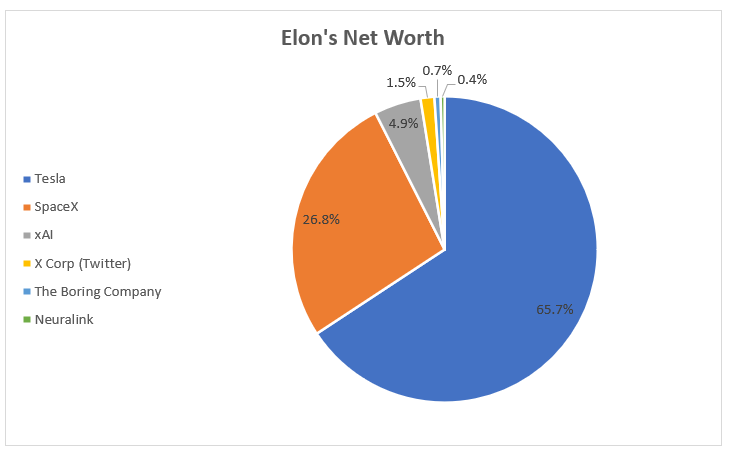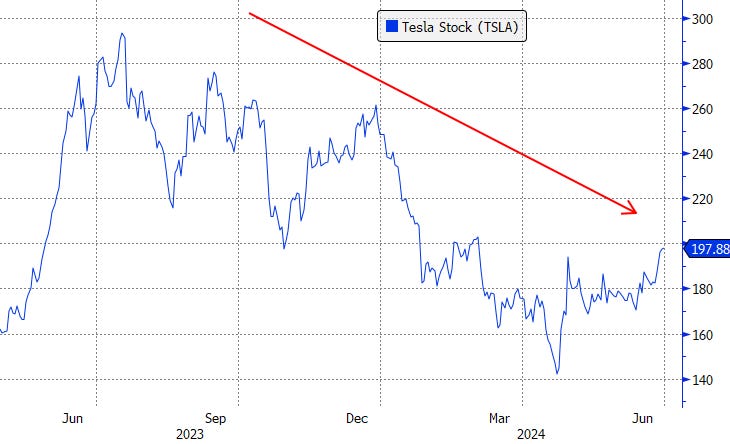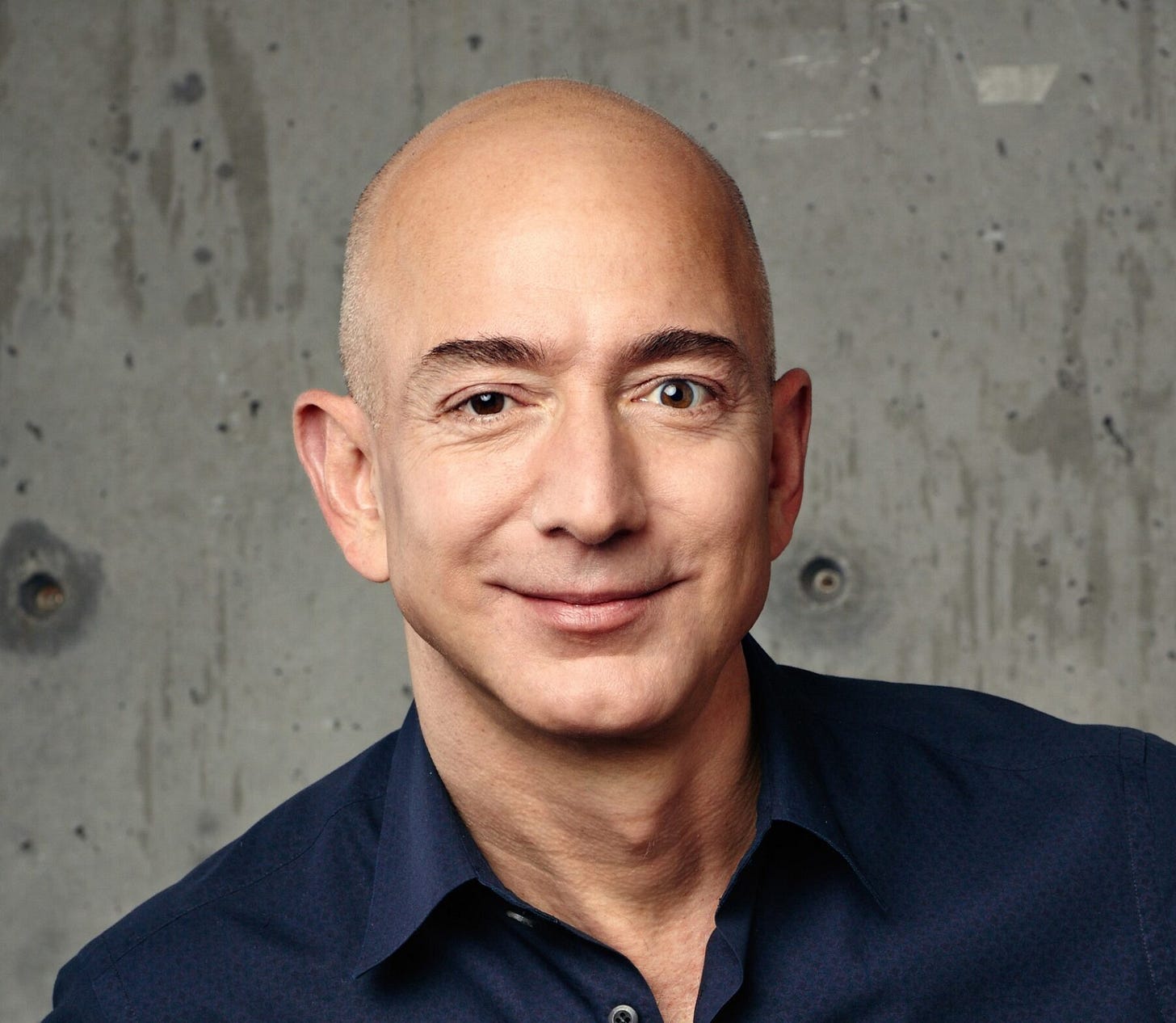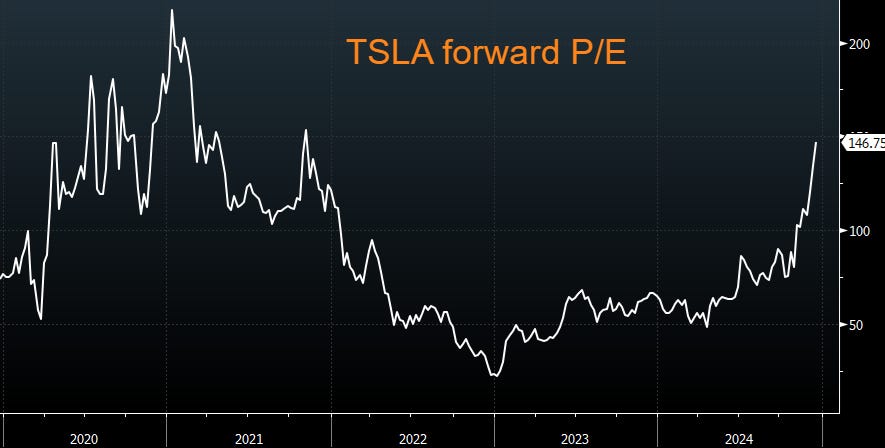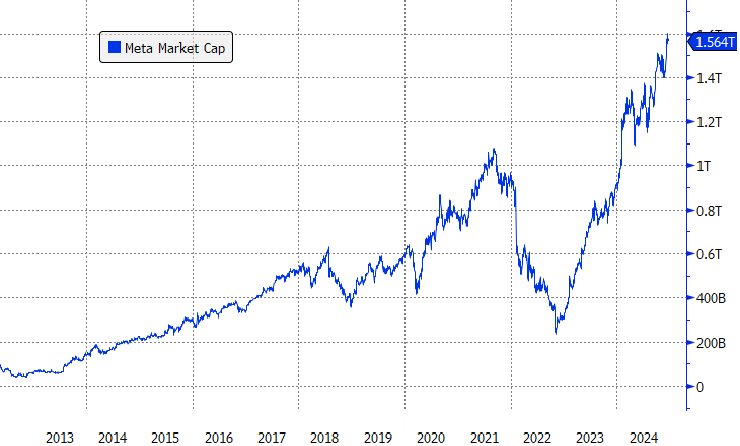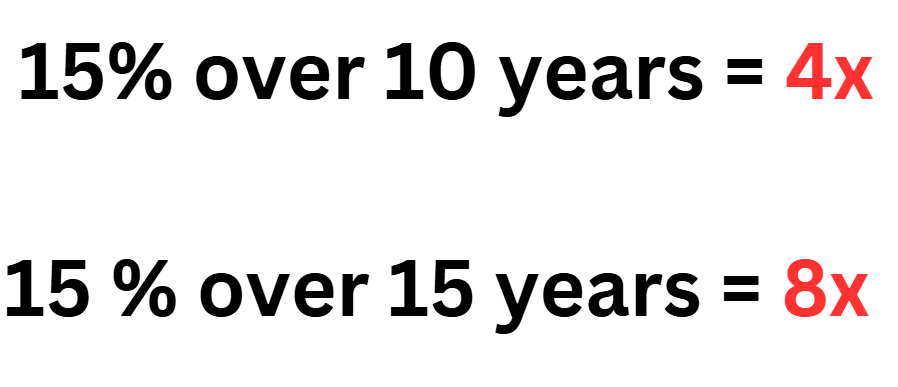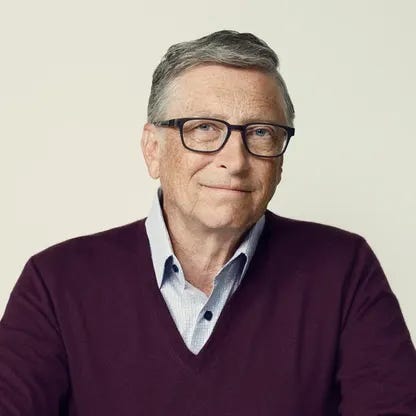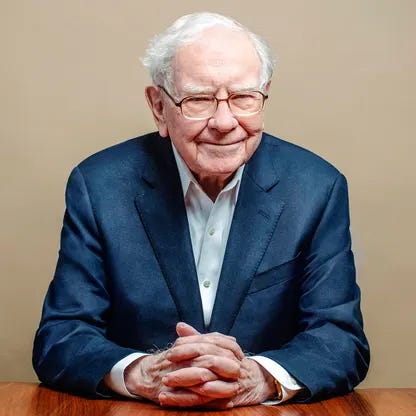Who Will Be The World’s First Trillionaire?
Who will be the world’s first trillionaire? And what does it mean for the rest of us when one person controls that much wealth?
You might have heard that recently, Elon Musk became the first person ever to reach a net worth of $400 billion.
Elon has a great shot at becoming the world’s first trillionaire, but he’s not the only one in this race.
This week, Elon’s net worth swelled to as much as $486 billion, according to the Bloomberg Billionaires Index— just short of half a trillion dollars.
$339 billion of his wealth comes from stocks and options tied to Tesla
$136 billion comes from his stake in SpaceX
Another $25 billion comes from his ownership position in xAI
And then he has some less valuable stakes in companies like X, the social media platform formerly known as Twitter ($7 billion); The Boring Company, which is focused on underground tunneling ($3 billion); and Neuralink, a company aiming to connect brains with computers ($2 billion)1
Because Tesla makes up such a significant portion of Elon’s wealth, and because the company’s stock is so volatile, Elon’s net worth is also extremely volatile.
Earlier this year, Tesla’s stock plunged because the electric vehicle market was struggling and there were a lot of concerns about competition from other automakers.
In April, as shares of Tesla dropped, Elon’s net worth fell as low as $164 billion.
But since then, Tesla’s stock has bounced back hard, reaching a record high for the first time in three years.
Investors’ focus has shifted to a potential reacceleration of Tesla’s EV sales in 2025, and they’ve started speculating that some of Tesla’s more futuristic bets— like its autonomous robotaxis and its humanoid robots— will pay off.
Since April, Tesla’s stock has tripled, which is similar to the increase in Elon’s net worth in that time.
But while Tesla has been the biggest contributor to the increase in Elon’s net worth, it’s not the only contributor.
Elon has also benefited from gains in his other ventures.
For instance, in its latest funding round, SpaceX— the maker of rockets, satellites and spacecraft— was valued at $350 billion, double what it was worth a year ago.
At the same time, xAI, the company behind Grok— a competitor to OpenAI’s ChatGPT— was valued at $50 billion (which is incredible considering that xAI was founded by Elon just last year).
So, if Elon is going to add another half a trillion dollars to his net worth, the gains are probably going to come from an increase in the value of these three companies— Tesla, SpaceX, and xAI.
This is a big advantage for Elon in the race to become the world’s first trillionaire: he has three high-growth companies driving his wealth, which is something that’s unique among centibillionaires.
That said, it’s not a foregone conclusion that Elon wins the race to trillionaire status. Right now, Elon is by far the richest person in the world with a net worth that’s double the next-richest person, Amazon founder Jeff Bezos, who has a net worth of almost $250 billion.
But $250 billion is obviously still an incredible sum of money, and puts Bezos a quarter of the way to a trillion dollars.
Meta CEO Mark Zuckerberg is also up there with a $220 billion net worth, and then there’s a bunch of other people— like the founders of Google and Microsoft, as well as members of the Walmart family— in the $100 billion to $200 billion net worth range.
Now, getting from $100, $200, or 300 billion to $1 trillion is no small feat. These people have to 3x, 5x, or 10x their wealth to get there.
In order to accomplish that, they have to own assets with a lot of upside potential, and ideally, assets that could appreciate quickly in value if they want to be the first one to reach the trillion-dollar milestone.
A guy like Bernard Arnault, the founder of the luxury goods conglomerate LVMH, isn’t in that category. His companies— like Louis Vuitton and Sephora— are great, but I don’t think they have the type of growth potential needed to multiply his wealth quickly enough to reach the $1 trillion mark first.
The same goes for the Walton family. Walmart’s stock has performed incredibly well recently, almost doubling from where it was at the start of the year.
But again, Walmart isn’t a high growth business, so the stock likely won’t keep surging at that same pace.
Someone like Jeff Bezos, on the other hand, has a shot. He’s No. 2 on the list right now, and Amazon operates in some fast-growing, high-tech industries, like AI and robotics.
That said, I think the biggest competition for Elon is Mark Zuckerberg.
Meta has all the ingredients to be an incredibly massive company. Obviously, it already is— but I think it could become substantially bigger if some of its major investments in AI, AR, and VR pay off.
So, I think the first trillionaire is going to be one of these two guys— Elon or Zuckerberg. Which brings us to the next question: when might we see the world’s first trillionaire?
I think that depends on whether the first trillionaire is either Elon, Zuckerberg, or someone else.
If it’s Elon, I think it’s going to happen relatively soon. The stocks of all his companies have a ton of momentum right now and the market environment is ripe for them to continue appreciating.
On the other hand, the high valuations of Elon’s companies are predicated on optimism about future growth. If that growth fails to materialize or investors turn more pessimistic about his companies, Elon’s net worth could tumble, just like we saw in April (as private companies, shares of SpaceX and xAI won’t be nearly as volatile as those of Tesla).
But let’s say all of the stars align for Elon; in that case, he could reach trillionaire status in the next few years—heck, maybe even in 2025.
Shares of Tesla and SpaceX have doubled over the past year, while xAI has gone from nothing to a $50 billion valuation.
I’m certainly not saying that kind of performance will necessarily repeat itself, but given that we are in an increasingly exuberant market environment, it’s not out of the question.
For Zuckerberg, it’ll probably take longer. He owns roughly 13.5% of his company, so Meta’s stock would need to reach a market capitalization of around $7.5 trillion for Zuck to become a trillionaire.2
That’s a fivefold increase from where it is today. At a 20% growth rate, that would take nine years; at a 30% growth rate it would take six years.
So, if Elon’s companies falter, Zuck has a great shot at being the first trillionaire.
An Inevitability
Of course, there are no guarantees and it’s possible that neither of these guys become a trillionaire (or at least, the first trillionaire).
But even if that’s the case, I think it’s almost a certainty that the world will eventually have not only one trillionaire, but multiple trillionaires.
Most of the people who are billionaires today are going to grow their wealth over time. Their companies are going to get bigger and more profitable, making them more valuable.
A 15% return compounded over a decade quadruples someone’s wealth, while a 15% return compounded over 15 years leads to an eightfold increase.
So, anyone with a net worth of around $125 billion today could conceivably become a trillionaire in the next decade and a half if they can generate those types of returns.
That’s why I think there will be a world of multiple trillionaires— and those trillionaires will include people who are currently among the richest people on Earth and other people who will rise the ranks in the future.
Trillionaires are inevitable.
In fact, we’d probably already have a trillionaire today if Bill Gates, the founder of Microsoft, didn’t decide to sell most of his shares.
When Microsoft went public in 1986, Bill Gates owned just under half of the company. If he kept that stake, it would be worth $1.7 trillion today.
But of course, Bill Gates didn’t hold onto those shares. He’s been steadily reducing his position to the point where he now owns less than 1% of Microsoft.
That said, there’s no need to shed any tears for Bill. He’s still worth $165 billion and a lot of his money has gone to charity.
It’s a similar story for Bill Gates’ good friend, Warren Buffet. If he continued to hold the nearly 500,000 shares of Berkshire Hathaway that he owned two decades ago, he’d be worth $341 billion today.
Instead, he’s given away over half of his shares and has plans to give away almost all of them eventually.
I think Bill Gates and Warren Buffet are well aware that past a certain number, the amount of money you have doesn’t matter all that much.
$1 billion is already an unbelievable amount of money. At a 5% interest rate, that’s equal to $50 million of income per year.
You could essentially buy anything you want.
$1 trillion— or 1,000 billions— is an ungodly amount of money, equal to $50 billion of income per year at a 5% interest rate, or more than the GDP of half of the world’s countries.
A trillion dollars is also more than the current market value of Walmart, as well as all but ten companies in the world.
So, to have this ridiculous level of wealth in the hands of a single person would be absolutely insane. But what could they do with this trillion that they couldn’t do with $1 billion, $10 billion or even $100 billion?
Well, if you’re talking about consumption goods, nothing changes. Beyond a certain level of wealth, it doesn’t matter how much money you have.
At $10 billion, someone can already buy all of the houses, private jets and luxury yachts that they want.
Where it potentially changes things is the level of influence that someone can have in society. Rich people have always been able to shape politics and culture— whether through campaign donations, lobbying efforts, or owning media outlets like newspapers and TV stations.
But with a trillion dollars, that level of influence could be amplified dramatically.
Instead of spending a few million dollars to influence an election, they could spend hundreds of millions, or even billions, of dollars.
Instead of owning a newspaper that reaches a few million people, they could own a social media platform that reaches hundreds of millions.
With the enormous resources they have, they could spread their influence far and wide—not just across America, but the entire world, shaping public opinion, government policies, and even cultural norms on a global scale.
We’ve already seen this happen to some extent with everything that Elon Musk has done over the past year.
Elon is obviously a one-of-a-kind figure, but I don’t think he’ll be the only ultra-wealthy individual who uses their wealth to reshape society and influence global events on a massive scale.
As the ranks of centibillionaires— and eventually trillionaires— grow, we’ll likely see others use their resources in similar ways.
Things are going to get interesting.
We’re in uncharted territory when it comes to the level of wealth that an individual has.
No human in history— not even titans of the past like John D. Rockefeller— has had the level of wealth that Elon and other centibillionaires have today.
Maybe you could say some authoritarian rulers of relatively large or wealthy countries (like Russia’s Putin or Saudi Arabia’s MBS) have similar levels of wealth. And in a certain sense, they might even be richer— but it’s hard to quantify that.
In terms of private individuals, though? We’ve never seen anything like this.
He also has liabilities of more than $20 billion
Not accounting for share buybacks


